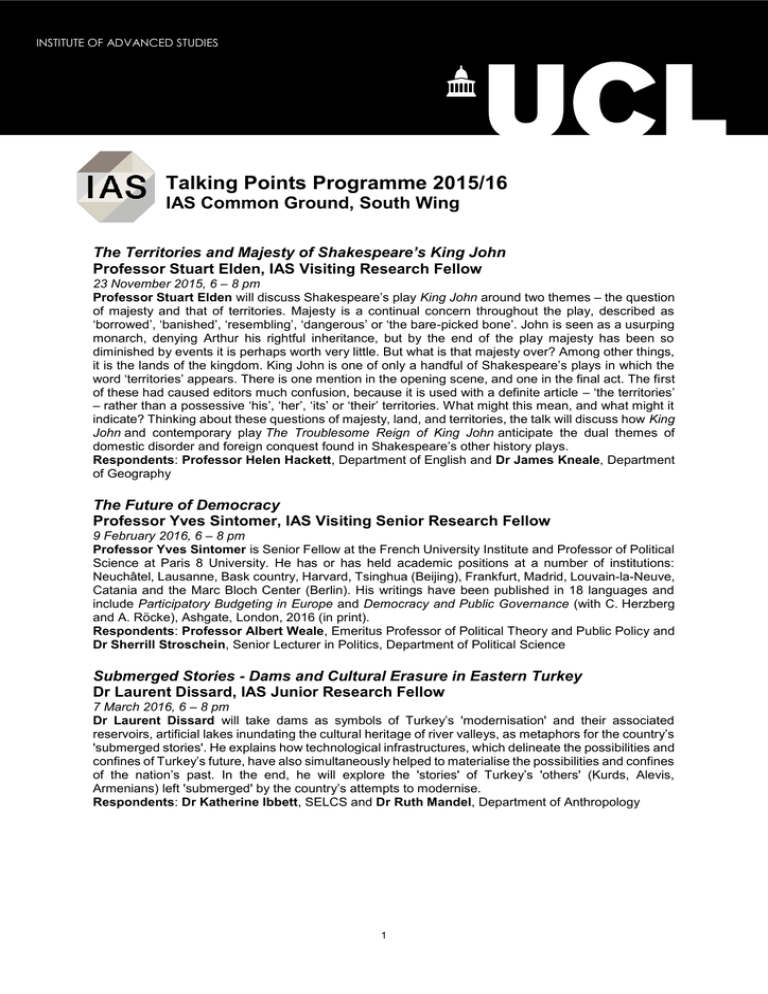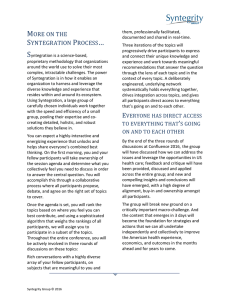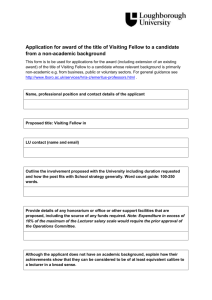Talking Points Programme 2015/16 IAS Common Ground, South Wing
advertisement

INSTITUTE OF ADVANCED STUDIES Talking Points Programme 2015/16 IAS Common Ground, South Wing The Territories and Majesty of Shakespeare’s King John Professor Stuart Elden, IAS Visiting Research Fellow 23 November 2015, 6 – 8 pm Professor Stuart Elden will discuss Shakespeare’s play King John around two themes – the question of majesty and that of territories. Majesty is a continual concern throughout the play, described as ‘borrowed’, ‘banished’, ‘resembling’, ‘dangerous’ or ‘the bare-picked bone’. John is seen as a usurping monarch, denying Arthur his rightful inheritance, but by the end of the play majesty has been so diminished by events it is perhaps worth very little. But what is that majesty over? Among other things, it is the lands of the kingdom. King John is one of only a handful of Shakespeare’s plays in which the word ‘territories’ appears. There is one mention in the opening scene, and one in the final act. The first of these had caused editors much confusion, because it is used with a definite article – ‘the territories’ – rather than a possessive ‘his’, ‘her’, ‘its’ or ‘their’ territories. What might this mean, and what might it indicate? Thinking about these questions of majesty, land, and territories, the talk will discuss how King John and contemporary play The Troublesome Reign of King John anticipate the dual themes of domestic disorder and foreign conquest found in Shakespeare’s other history plays. Respondents: Professor Helen Hackett, Department of English and Dr James Kneale, Department of Geography The Future of Democracy Professor Yves Sintomer, IAS Visiting Senior Research Fellow 9 February 2016, 6 – 8 pm Professor Yves Sintomer is Senior Fellow at the French University Institute and Professor of Political Science at Paris 8 University. He has or has held academic positions at a number of institutions: Neuchâtel, Lausanne, Bask country, Harvard, Tsinghua (Beijing), Frankfurt, Madrid, Louvain-la-Neuve, Catania and the Marc Bloch Center (Berlin). His writings have been published in 18 languages and include Participatory Budgeting in Europe and Democracy and Public Governance (with C. Herzberg and A. Röcke), Ashgate, London, 2016 (in print). Respondents: Professor Albert Weale, Emeritus Professor of Political Theory and Public Policy and Dr Sherrill Stroschein, Senior Lecturer in Politics, Department of Political Science Submerged Stories - Dams and Cultural Erasure in Eastern Turkey Dr Laurent Dissard, IAS Junior Research Fellow 7 March 2016, 6 – 8 pm Dr Laurent Dissard will take dams as symbols of Turkey’s 'modernisation' and their associated reservoirs, artificial lakes inundating the cultural heritage of river valleys, as metaphors for the country’s 'submerged stories'. He explains how technological infrastructures, which delineate the possibilities and confines of Turkey’s future, have also simultaneously helped to materialise the possibilities and confines of the nation’s past. In the end, he will explore the 'stories' of Turkey’s 'others' (Kurds, Alevis, Armenians) left 'submerged' by the country’s attempts to modernise. Respondents: Dr Katherine Ibbett, SELCS and Dr Ruth Mandel, Department of Anthropology 1 Understanding Others Without Abandoning The World: Empathy and the challenge of 'psychotic' phenomena Dr Mohammed Aboulleil Rashed, IAS Junior Research Fellow 29 April 2016, 6 – 8 pm Dr Mohammed Rashed will begin with an exploration of the problem of understanding delusions and hallucinations, will continue with a philosophical critique of current attempts to solve this problem, and finally proceed by exploring various anthropologically-inspired approaches as a potential solution to the challenge of understanding others - in this case 'psychotic' phenomena. Respondents: Dr Joseph Calabrese, Department of Anthropology, UCL and Dr James Wilson, Department of Philosophy, UCL Secret in the Body - The fantasy structure of genes and brains Professor Renata Salecl, Professor of Psychology/Psychoanalysis and Law, School of Law, Birkbeck College, University of London 4 May 2016, 6 – 8 pm The advances of biological sciences have opened new ways to reflect on the nature of subjectivity. Genetics and neuroscience on top of bringing new knowledge about our bodies also incite anxieties and paranoia, while they also give rise to new forms of social control. The lecture will first look at the fantasies people create around genes and brains in their private lives. Second, it will analyse the fascination with DNA in the judicial system and the way movies and TV series contribute to the perception of the all powerlessness of forensic science. And third, it will look at the way the desire to see the secret in the body goes hand in hand with new forms of denial and ignorance. Respondents: Professor Hilary Rose, Visiting Research Professor of Sociology, London School of Economics and Professor Emerita of Social Policy, University of Bradford and Professor Steven Rose, Emeritus Professor, Department of Life Health and Chemical Sciences, The Open University A Coffin-Maker of Bleak House - Courtroom Culture in Modern London Dr Sascha Auerbach, Visiting Research Fellow and Lecturer in the Department of History at the University of Nottingham 9 May 2016, 6 – 8 pm Dr Auerbach will explore some of the major topics of his book (Armed with Sword and Scales), focusing on how patterns of courtroom interaction and public portrayals evolved over the nineteenth century, and how this evolution shaped popular literature, gender relations, working-class marriage, national identity and the definition of 'justice' in modern British society. The focus of his analysis is the London magistrates’ courts, their communities and their public portrayals. By the mid-nineteenth century, these thirteen 'Police Courts' were adjudicating, under the authority of justices sitting alone, the overwhelming majority of metropolitan criminal and civil cases. They occupied a wide variety of legal and social roles, from mediating marital conflicts to the enforcement of municipal regulations on health and safety. His goal with this research is not merely to add to the narrative of British legal, cultural, or social history. Respondents: Dr Matthew Beaumont, Department of English and Professor Frederic Schwartz, Head of Department of History of Art, Faculty of Social & Historical Sciences Corruption and Race in the East India Company, 1800-1857 Dr Ellen Filor, IAS Junior Research Fellow 17 May 2016, 6 – 8 pm Dr Ellen Filor’s paper will explore the shifting meanings of corruption in the colonies at the beginning of the nineteenth century. Utilising a database of the hundred or so cases of corruption brought to the attention of the East India Company board of directors, this paper will explore the gap between the legislative aims of legal reforms and the workings of such laws in practice. Over the period, the numbers of Europeans being accused of corruption declined steadily between 1800 and 1857 while the number of Indians accused rose steadily. This period, therefore, saw a shift in the ways that corruption was perceived on the subcontinent: it became something the ‘native’ did rather than the ruling Briton. As anthropologists have suggested, accusations of corruption are one way that non-Western nations can be ‘Othered’ and thus tarred as ‘backward’ or ‘traditional’ societies. Examining this racialising of corruption in nineteenth-century India complicates anthropological and social science approaches to contemporary corruption. Respondents: Dr David Hudson, Senior Lecturer in Political Economy in the Department of Political Science and Dr Natasha Eaton, Reader in History of Art 2 Controlling our Bodies - Muslim women artists speak out Dr Asmaa Soliman, Visiting Research Fellow, Institute of Advanced Studies 7 June 2016, 6 – 8 pm Dr Soliman will present some of the views expressed by European Muslim women artists concerning the ongoing attempts by various actors to control their body, patronising them as they do so. The constant calls to either ‘uncover’ or ‘cover up’ are voiced by men and women, both from within and outside the Muslim community. Irrespective of what is being demanded of these Muslim women, it is evident that their bodies are instrumental, a tool through which various actors exert their power and fulfil the need to act as guardians. To a certain extent the body of Muslim women becomes a battlefield where diverse ways of conceptualising what is considered “good” and “bad” are played out. The artists express their frustration with this continuous interference in their lives and voice how they view themselves. Respondent: Dr Ruth Mandel, Department of Anthropology A Poetics of Trauma after 9/11 - Representing vulnerability in a digitized present Dr Katharina Donn, Visiting Research Fellow, Institute of Advanced Studies 8 June 2016, 6 – 8 pm No image evokes the impact of 9/11 like that of the ‘Falling Man’, a person in headfirst fall from the World Trade Center captured by Richard Drew; this photograph crystallizes what Dr Donn defines to be the pivotal challenges of trauma theory in the early 21st century. The striking contrast between vulnerable body and an architecture of glass and steel, the ambivalent publishing history between global spectacle and journalistic taboo, all point to the necessity of re-thinking habitual frames of response to terrorist violence. The 2001 attacks brought large-scale violence into the Western 21st century with force, and have come to epitomize this entanglement of terror and the media, pain and spectacle that is typical of the globalized present. Respondents: tbc 3


